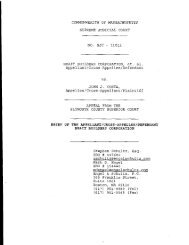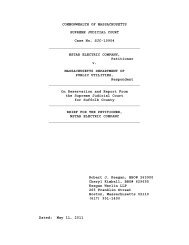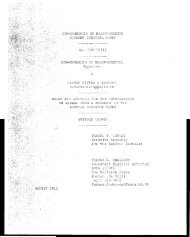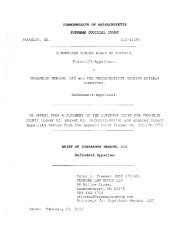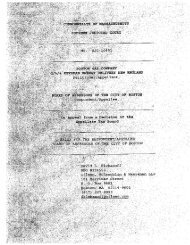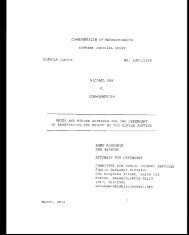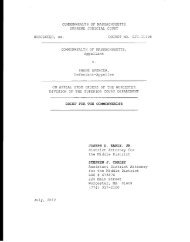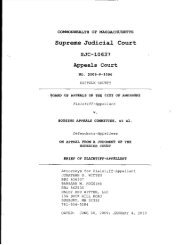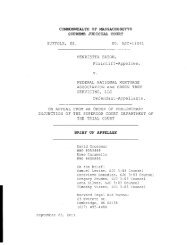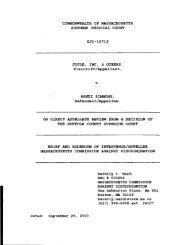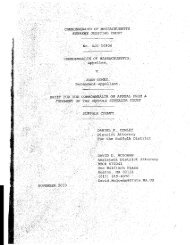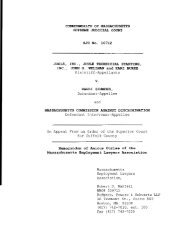463 Mass. 353 - Appellee Commonwealth Brief - Mass Cases
463 Mass. 353 - Appellee Commonwealth Brief - Mass Cases
463 Mass. 353 - Appellee Commonwealth Brief - Mass Cases
Create successful ePaper yourself
Turn your PDF publications into a flip-book with our unique Google optimized e-Paper software.
at 554, If the overall strength of the <strong>Commonwealth</strong>'s<br />
case "radiates" from evidence that should have been<br />
suppressed, that is a special consideration that would<br />
factor against a finding of harmless error. Id. The<br />
"taint" of primary illegality can extend broadly, and<br />
has even been applied to evidence that was admitted in<br />
the defendant's case in chief. See, e.g., <strong>Commonwealth</strong><br />
v. Charras, 443 <strong>Mass</strong>. 752, 765-767, cert. denied, 546<br />
U.S. 870 (2005) (defendant's decision to testify on his<br />
own behalf was itself "tainted" because it was forced<br />
on him by a police illegality that should have resulted<br />
in invocation of the exclusionary principles and<br />
suppression of key <strong>Commonwealth</strong> evidence) .<br />
But no such far reaching "taint" was associated<br />
with the confrontation clause error in this case. Put<br />
otherwise, Ronald Mendes's decision to testify did not<br />
"radiate" from the un-objected-to admission of the<br />
certificates of analysis in this case. Accordingly,<br />
the "overall strength of the <strong>Commonwealth</strong>'s case,"<br />
viewed in relation to the sixth Degraca factor ("the<br />
weight or quantum of evidence of guilt'') does not<br />
"radiate" from the taint associated with any initial<br />
illegality.<br />
30



